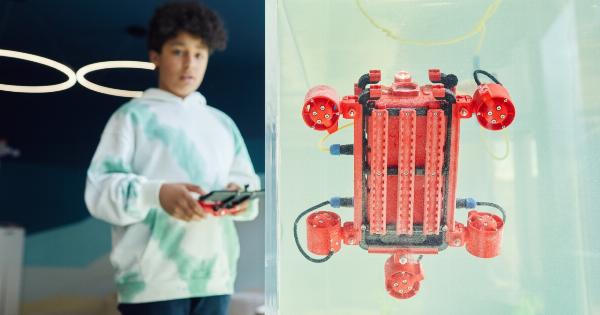Mental health is as important as physical health, and it’s essential to keep track of it, especially among children. However, identifying mental health problems among children can be difficult, as the symptoms are often vague and nonspecific.
In recent years, doctors and mental health professionals have begun to turn towards technology to help address this issue. One such technology that has shown promise in assessing children’s mental health is robots.
What is Robot Technology for Mental Health Assessment?
Robots for mental health assessment are designed to interact with children in a non-invasive, non-threatening way.
They come equipped with a range of sensors and cameras that allow them to monitor and assess various aspects of a child’s behavior and emotional state.
For example, a robot may be designed to ask children questions about how they’re feeling or to engage them in simple games or exercises that help assess their level of cognitive function.
The robot might also monitor physiological markers like heart rate and breathing patterns to provide additional information about a child’s emotional and mental state.
How Effective is Robot Technology for Mental Health Assessment?
Many studies have shown that robots are highly effective at assessing children’s mental health. One such study involved a robot named “Nao,” designed to interact with children with autism spectrum disorders (ASD).
During the study, Nao interacted with 23 children with ASD over six weeks.
The robot’s ability to monitor and track children’s emotions, as well as its non-threatening and non-judgmental nature, made it an effective tool for assessing children’s mental health.
In another study, researchers used a robot named “ZENO” to interact with children with attention deficit hyperactivity disorder (ADHD).
They found that ZENO was able to identify specific behavioral patterns that are common among children with ADHD, and that these patterns could be used to accurately predict whether a child had the disorder.
The Benefits of Using Robots for Mental Health Assessment
There are several benefits to using robots for mental health assessment, including:.
Non-Invasive
Robots are non-invasive, meaning they don’t require children to undergo any invasive tests or procedures. This can make it easier to assess children’s mental health without causing additional stress or anxiety.
Non-Judgmental
Robots are non-judgmental, meaning they don’t bring any preconceived beliefs or biases to the assessment process. This can help children feel more comfortable opening up about their thoughts and feelings.
Objective
Robots can provide a more objective assessment of children’s mental health than a human clinician. This is because robots are not influenced by subjective opinions or emotions, which can impact the accuracy of a human assessment.
Consistent
Robots are consistent in their assessment methods, which can help improve the accuracy of the assessment process. This consistency also makes it easier to track changes in a child’s mental health over time.
Conclusion
Robot technology is a promising tool for assessing children’s mental health. Its non-invasive, non-judgmental, objective, and consistent nature makes it an effective alternative to traditional assessment methods.
While more research is needed to fully understand the benefits and limitations of robot technology for mental health assessment, it’s clear that it has the potential to play a significant role in improving our understanding of children’s mental health.






























